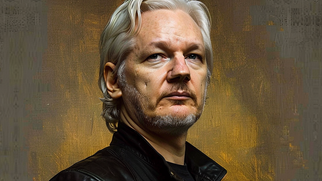
U.S. Imposes Sanctions Against Chinese State Actors for Global Hacking Operations
The United States has initiated sanctions against Chinese state actors for their involvement in a pervasive global hacking campaign.

The United States has initiated sanctions against Chinese state actors for their involvement in a pervasive global hacking campaign.

The Missouri Attorney General's office is probing Media Matters for America over suspected fraudulent practices, triggered by a controversial report on social media advertising.

President Biden’s signing of the $1.2 trillion Further Consolidated Appropriations Act, 2024.

The House Judiciary Committee is scrutinizing the IRS's deployment of artificial intelligence in tax surveillance, raising alarms about potential warrantless monitoring of millions of Americans.

Congressional leaders are intensifying their investigation into potential presidential abuse of power, focusing on whistleblower claims that the CIA obstructed the IRS and DOJ from interviewing a crucial witness in Hunter Biden's tax investigation.

The U.S. House of Representatives has unanimously passed a pivotal bill to restrict third-party data brokers from selling sensitive American user data to foreign adversaries.

Irish Prime Minister Leo Varadkar's unexpected resignation marks the end of an era in Irish politics.

Ron Paul, known for his non-interventionist foreign policy views, critically examines the U.S.'s role in Ukraine, questioning the motives and benefits of its actions.

The United States has initiated sanctions against Chinese state actors for their involvement in a pervasive global hacking campaign.

The Missouri Attorney General's office is probing Media Matters for America over suspected fraudulent practices, triggered by a controversial report on social media advertising.

President Biden’s signing of the $1.2 trillion Further Consolidated Appropriations Act, 2024.

The House Judiciary Committee is scrutinizing the IRS's deployment of artificial intelligence in tax surveillance, raising alarms about potential warrantless monitoring of millions of Americans.

Congressional leaders are intensifying their investigation into potential presidential abuse of power, focusing on whistleblower claims that the CIA obstructed the IRS and DOJ from interviewing a crucial witness in Hunter Biden's tax investigation.

The U.S. House of Representatives has unanimously passed a pivotal bill to restrict third-party data brokers from selling sensitive American user data to foreign adversaries.

Irish Prime Minister Leo Varadkar's unexpected resignation marks the end of an era in Irish politics.

Ron Paul, known for his non-interventionist foreign policy views, critically examines the U.S.'s role in Ukraine, questioning the motives and benefits of its actions.

The U.S. Supreme Court’s recent decision allows Texas to enforce its immigration law, SB4, as legal appeals proceed.

Canada's proposed Online Harms Act, Bill C-63, has ignited a fierce debate over free speech and government regulation. The bill suggests harsher penalties for online speech offenses, including the possibility of life imprisonment.

In the interview with Stella Assange, the ongoing plight of Julian Assange is brought to the forefront, painting a grim picture of his decade-long confinement and the looming threat of extradition to the U.S.

Tucker Carlson's interview with Russian President Vladimir Putin, as analyzed in Glenn Beck's podcast, represents a critical exploration of the complex interplay between journalism, diplomacy, and individual freedoms.
Mike Benz, in a revealing podcast episode, uncovers the covert transformation of free speech in the U.S. from a cherished right to a controlled commodity. His analysis exposes the complex interplay between the government, military, and tech giants in this new era of information warfare.

On February 8, 2024, Tucker Carlson released an interview with Russian President Vladimir Putin, primarily focusing on the ongoing war in Ukraine. The interview took place at the Kremlin and lasted for over two hours.
